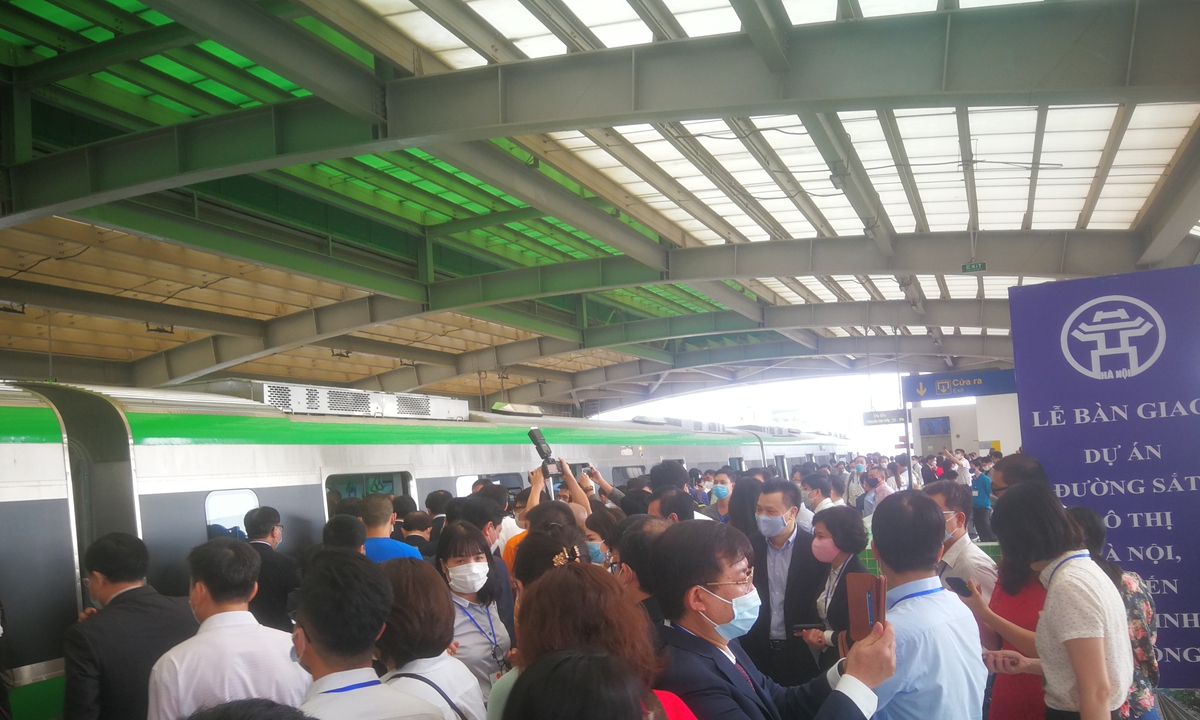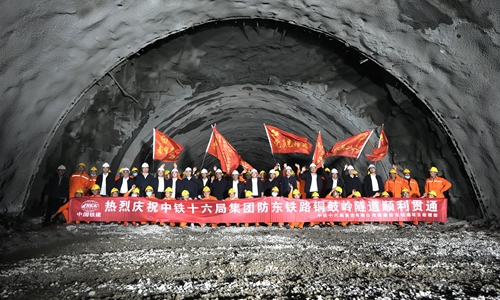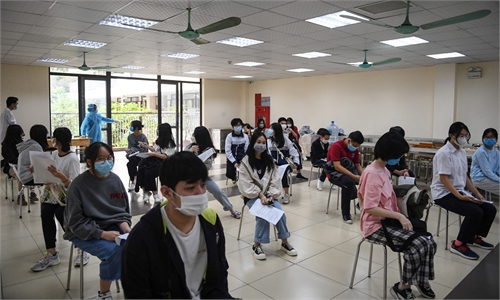
Passengers take the Cat Linh-Ha Dong metro line in Hanoi after it launches commercial operations on November 6, 2021. Photo: Courtesy of China Railway Sixth Group Co
The Chinese contractor of the first metro line in Vietnam and local residents in the Vietnamese capital of Hanoi on Tuesday refuted a recent report by Voice of America (VOA) that claimed lack of riders on the train, stressing that the enthusiasm of local passengers ran high during trial operations.
"Local residents have been looking forward to the launch of the metro line. During the trial operations, passengers of all ages swarmed to the stations to have a try. Some young couples also took wedding photos in the landmark," a person at China Railway Sixth Group Co who is familiar with the project told the Global Times on Tuesday.
The 13-kilometer Cat Linh-Ha Dong metro line with 12 stations, built by China Railway Sixth Group Co and handed over to Hanoi on November 6, is the first urban railway in the country. During the first 15 days after the line's handover, 200,000 tickets were given out for free to local residents, the person said.
The VOA reported on Sunday that the number of passengers was low, at only 8 percent of the daily capacity. The US government-funded outlet then linked the "lack of riders" to an alleged boycott of Chinese projects in Vietnam.
However, contrary to the report, a resident surnamed Nguyen in Hanoi told the Global Times on Tuesday that "local people highly anticipate taking the Cat Linh-Ha Dong metro line and it will ease traffic congestion, for sure."
Nguyen noted that the city's multiple means of transportation may mean that passenger volume may be lower some times. The capital city is known for its dense crowds of motorbikes. A journey of four to five metro stations, which takes about one hour by motorbike, would now take about 10 minutes, according to the person at China Railway Sixth Group Co.
In addition, the COVID-19 continues to cause disruption in the city, leading to fewer commuters. On Monday, Hanoi logged a record high of 1,000 cases, according to the Vietnamese Ministry of Health.
Authorities in Hanoi's Dong Da district suspended on-site dining at restaurants, outdoor exercises, and in-person classes from Monday after recording a high number of cases.
Moreover, responding to a VOA claim that the project had experienced "many years of delays and cost overruns," the person from China Railway Sixth Group Co said that the company had encountered disruptions during construction over the past decade but it was still able to deliver the project faster than other firms.
"In China, a railway line of only 13 kilometers usually takes one to two years to finish. We were interrupted during the construction but some Japanese and French companies were allowed to continue with their work. But now, look who delivered the metro line first," the person said.
With a cost of $868 million, the operation of the metro line now lies in the hands of the local metro company, she noted, adding that Chinese companies have helped train Vietnamese drivers and management staff.
Although the line already started commercial operations, an official launch ceremony is expected to be held at the end of December, the person said.
Chu Daye contributed to the story.




